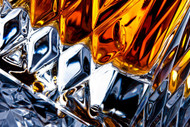Whisky vs Whiskey - What is the Difference?
11th Jul 2019
If you've ever wandered around a bottle shop or searched an online alcohol retailer, then you'll be familiar with the two different ways to spell whiskey, or should I say whisky. Generally speaking, whiskey is produced in Ireland and the United States, with all other nations producing whisky. Two different spellings of what is essentially the same drink represent more than a spelling mistake, it tells an interesting story that stretches from Ireland to Scotland and across the world.
In the beginning
While there is some evidence that distillation occurred as early as the 2nd millennium BC by the Babylonians in Mesopotamia, this is disputed. The earliest certain evidence of distillation is from the 1st century AD in Alexandria, with the first distillation of alcohol occurring much later in the 13th century in Italy. Even then, alcohol was distilled for medicinal purposes, with whisky mentioned as a non-medical drink for the first time in Ireland in 1405 and Scotland in 1494.
Language and politics
While there is no single reason why both whisky and whiskey are used to describe what is essentially the same drink, there are two possible explanations for the whisky vs whiskey debate.
The first reason is down to language itself, with differing Irish and Scotch Gaelic translations of uisge beatha, or "water of life", leading to two terms. Some writers take this to its ultimate conclusion, saying the spelling difference is simply a matter of regional language convention. Others disagree, however, saying the spelling should depend on the style or origin of the spirit being described.
The second reason has a more political bent that's tied up with whisky production in the late 19th century. Even the major Irish distillers used to spell whisky without an e, as did the Americans. Everything changed in 1860 however, which is when the Gladstone government in the United Kingdom passed the Spirits Act.
This allowed the creation of whisky blends for the first time, with grain malts and single malts combined by a number of Scottish distilleries in order to compete with the Irish. The Irish distilleries were leading the world at the time, with up to 70% of all whisky production. As the Scottish distilleries gained market share, many of the Irish brands made the choice to change the name of whisky to whiskey to differentiate their products and support their natural language roots.
Over time, this decision has influenced whisky production and classification systems around the world. Today, the term "whiskey" is used primarily in Ireland and the United States, where Irish products were more popular and the history of whiskey production has strong Irish roots. Most other whisky producing nations, including Japan, Canada, and of course Scotland, have stuck to the traditional term "whisky".

